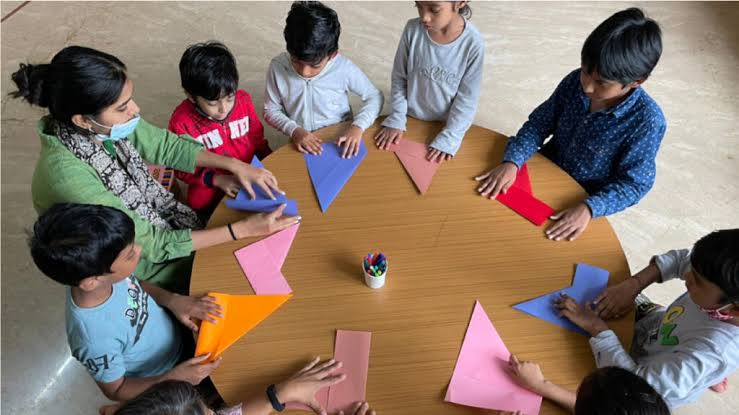
Rajesh Bhatia, educationist and founder of TreeHouse Education & Accessories Ltd, believes project-based learning can enhance student engagement and critical thinking.
Project-based learning (PBL) is a dynamic classroom approach that helps students gain profound knowledge through actively participating in real-world challenges, engaging in inquiry, and problem-solving to address complex questions.
American philosopher, psychologist, and educational reformer John Dewey, an early proponent of this experiential method, emphasized that a teacher’s role was not to impose specific ideas or cultivate particular habits in a child. Instead, it was to choose influences that would carefully shape the child’s responses.
Educator and founder of the TreeHouse chain of schools, Rajesh Bhatia, elucidates the point further and says, “John Dewey emphasized that learning is a natural consequence of doing.
Integrating real-world situations into the learning experience can equip students with essential skills in a competitive job market. It encourages them to think on their feet and confidently tackle academic, work, and life challenges.”
Mr. Bhatia also recommends project-based learning for the following reasons:
Enhanced student engagement
The chalk-and-talk method is often a one-dimensional way of teaching and often results in reduced student engagement. On the other hand, project-based learning (PBL) enhances engagement because it is student-centered. Here learning is gained through self-discipline, goal setting, and organizational and analytical skills.

Student engagement automatically increases when learning is dynamic, creative, inquiry-based, interdisciplinary, exploratory, and personally meaningful. This method also builds a sense of accomplishment and confidence in students while motivating them to become proactive inside and outside of the classroom.
Improved critical thinking
PBL breaks through patterns of passive learning and encourages students to ask questions, grapple with multiple solutions, analyze which is best suited to the problem, and cultivate their critical thinking.
Through asking questions and formulating solutions, students become active participants in their education, take an interest in complex subjects, and become adept problem solvers, which is increasingly important today. Moreover, these skills are highly sought after by employers.
Engagement with real-world situations
Unlike traditional classrooms, project-based learning requires students to apply their knowledge to real-world problems. This kind of approach provides students with an opportunity to go beyond rote learning.
Students can learn to apply knowledge to real situations and challenges through debates, field trips, community service activities, and creative projects. PBL is especially useful in STEM instruction and the arts and encourages long-term knowledge retention.
Collaborative and enriching
Conventional education, with its inordinate emphasis on grades, often encourages unhealthy competition, whereas collaboration is an intrinsic element of the PBL process. The collaboration aspect of PBL helps vocal learners listen, brainstorm, and work with rather than against their peers. This soft skill is crucial in corporate settings as well. In a PBL setting, the quieter students also get a chance to show their unique skills and perspectives. PBL also enables students to have difficult conversations with peers because it creates a space for dialogue and enriches the social and communication skills of the students.
Personalized Learning
A critical aspect of PBL is personalized learning that respects a student’s voice and choice. Many international universities now facilitate students to customize their majors, which could be interdisciplinary. Student-led learning experiences could be the future of education and reflect each student’s interests, strengths, and academic needs.
It goes without saying that when learners are involved in their educational journey, learning outcomes are more positive.
We need transformative education modules today that can open minds and turn learners into innovators. To paraphrase American journalist Sydney J. Harris, the true purpose of education is to turn mirrors into windows, and PBL achieves exactly that. To prepare the next generation to deal with the complexities of the future, more Indian schools should adopt this transformative approach.
Explore more official announcements in our Press Release section.

